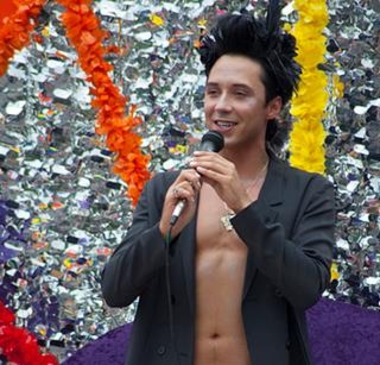Column: 'Confrontation' set as new Olympic event?

JIM LITKE, AP Sports Columnist
A different kind of "sport" will make its debut at the upcoming Sochi Games. It's called confrontation.
If the still-unfinished construction, billions in cost overruns, lack of snow and terrorism threats already circling the upcoming Winter Olympics haven't gotten your attention, this latest wrinkle should. Don't bother consulting the TV listings or official schedules, since only a few people know when, where or how many are going to get involved.
It will pit athletes and activists determined to make a very public statement about gayrights against their Russian hosts, who appear just as determined to make sure that doesn't happen. And there's no chance the International Olympic Committee will get between them. Ditto for the national Olympic committees, international federations and their high-minded sponsors and TV partners.
Forced to choose sides between the principles in their Olympic and corporate charters and a big payday, all of them have responded to the growing furor over a new anti-gay propaganda law in Russia the same way they always do: Timidly. They repeated the old saw about the Olympics being above politics, then grabbed the cash with one hand and issued a statement with the other.
"The IOC has received assurances from the highest level of government in Russia that the legislation will not affect those attending or taking part in the Games," the statement said.
Great.
Trusting is fine, but to paraphrase an old Russian proverb, verifying is much better. And just about the same time the IOC was boasting about receiving "assurances," Russian sports minister Vitali Mutko was saying exactly the opposite.
Speaking to the Ria Novosti news agency, Mutko made clear the law applied to everyone, including foreign nationals ranging from fans to coaches, as well as the athletes themselves.
"No one is forbidding an athlete with non-traditional sexual orientation from coming to Sochi, but if he goes onto the street and starts propagandizing it, then of course he will be held accountable," Mutko said.
Johnny Weir, the openly gay U.S. figure skater who competed in the last two Olympics, has volunteered for the duty if he wins one of the two slots on the team headed for Sochi.
"If it takes me getting arrested for people to pay attention and for people to lobby against this law, then I'm willing to take it," Weir said.
Chances are good he'll have plenty of teammates, too; New Zealand short-track speed skater Blake Skjellerup, for one, who has already said he plans to wear a gay-pride pin at the games regardless of consequences ranging from arrests, fines and jail time, to deportation.
So imagine what happens if such a confrontation takes place and the IOC and the others mentioned above are actually forced to respond.
Does the IOC or a National Olympic Committee, for example, step in and risk the embarrassment of sending an athlete home for a political gesture? Or stand by and say nothing while the local authorities bundle him or her onto the first flight? Do major sponsors like Coca-Cola, Visa, Dow, Omega and Panasonic threaten to pull out? Does NBC report aggressively on every incident?
Take the under on those bets.
When a few Muslim countries threatened to maintain the status quo back home and send teams without women to the 2012 London Olympics, the IOC bent over backwards to change the old order. It played fast and loose with its own rules so some of those athletes could compete.
Granted, from a competitive standpoint, most of the events they took part in were a farce. So, in hindsight, was the line in IOC president Jacques Rogge's speech at the opening ceremony:
"For the first time in Olympic history all the participating teams will have female athletes. This is a major boost for gender equality."
You're not likely to hear him repeat that second line on the eve of the Sochi Games. Human-rights activists are gearing up to make those in charge just as uncomfortable over Russia's anti-gay propaganda law. But threats of boycotts — including Russian vodka — have made no impression on the hosts, and everybody else involved has decided for now that the best strategy is to ride out the storm, at least until all the checks have cleared.
Copyright 2013 The Associated Press.
August 16, 2013





